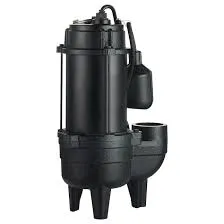English
- Afrikaans
- Albanian
- Amharic
- Arabic
- Armenian
- Azerbaijani
- Basque
- Belarusian
- Bengali
- Bosnian
- Bulgarian
- Catalan
- Cebuano
- Corsican
- Croatian
- Czech
- Danish
- Dutch
- English
- Esperanto
- Estonian
- Finnish
- French
- Frisian
- Galician
- Georgian
- German
- Greek
- Gujarati
- Haitian Creole
- hausa
- hawaiian
- Hebrew
- Hindi
- Miao
- Hungarian
- Icelandic
- igbo
- Indonesian
- irish
- Italian
- Japanese
- Javanese
- Kannada
- kazakh
- Khmer
- Rwandese
- Korean
- Kurdish
- Kyrgyz
- Lao
- Latin
- Latvian
- Lithuanian
- Luxembourgish
- Macedonian
- Malgashi
- Malay
- Malayalam
- Maltese
- Maori
- Marathi
- Mongolian
- Myanmar
- Nepali
- Norwegian
- Norwegian
- Occitan
- Pashto
- Persian
- Polish
- Portuguese
- Punjabi
- Romanian
- Russian
- Samoan
- Scottish Gaelic
- Serbian
- Sesotho
- Shona
- Sindhi
- Sinhala
- Slovak
- Slovenian
- Somali
- Spanish
- Sundanese
- Swahili
- Swedish
- Tagalog
- Tajik
- Tamil
- Tatar
- Telugu
- Thai
- Turkish
- Turkmen
- Ukrainian
- Urdu
- Uighur
- Uzbek
- Vietnamese
- Welsh
- Bantu
- Yiddish
- Yoruba
- Zulu
Telephone: +86 13120555503
Email: frank@cypump.com
Dec . 10, 2024 20:10 Back to list
Effluent Pump Solutions for Efficient Wastewater Management and Environmental Protection
Understanding Effluent Pumps The Unsung Heroes of Wastewater Management
Effluent pumps play a crucial role in wastewater management, ensuring that treated sewage and greywater are effectively moved away from treatment facilities and into designated discharge areas or for further treatment processes. While they may not be the most glamorous or highly-regarded components in a municipal utility system, their importance cannot be overstated. This article delves into what effluent pumps are, how they work, their applications, and why they are essential for modern sanitation systems.
What is an Effluent Pump?
An effluent pump is a specially designed submersible pump used to transport wastewater, particularly effluent—water that has been treated for reuse or safe discharge. Unlike standard sewage pumps, effluent pumps are built for less viscous materials that contain lower solid content, typically less than two inches in diameter. They are often employed when gravity flow is insufficient to move wastewater to a treatment plant or discharge point.
How Do Effluent Pumps Work?
Effluent pumps operate using a simple mechanism a motor drives an impeller that generates centrifugal force. This force propels the liquid upwards and out through the discharge pipe. The pumps are equipped with a float switch, which automatically activates the pump when the water level reaches a predetermined height, ensuring that wastewater does not accumulate and impede the system.
Materials used for effluent pumps are typically corrosion-resistant, allowing them to withstand the chemically active environments they often operate in. Common materials include stainless steel, thermoplastics, and various elastomers.
Applications of Effluent Pumps
Effluent pumps are used in a variety of settings and applications. Here are some of the most common
1. Sewage Treatment Plants In municipal wastewater systems, effluent pumps are responsible for transporting treated water from treatment facilities to designated discharge areas, such as rivers or oceans, or for further treatment processes.
2. Residential Wastewater Systems In rural or suburban settings where gravity flow is not possible, homeowners may rely on effluent pumps in septic systems or sump pits to move wastewater away from the property.
effulent pump

3. Industrial Applications Many industries generate wastewater that must be treated before disposal. Effluent pumps help transport this liquid waste to treatment facilities, ensuring compliance with environmental regulations.
4. Irrigation and Landscaping Treated effluent can be reused for irrigation purposes, and effluent pumps facilitate the distribution of this water to agricultural lands, parks, and gardens, promoting sustainable water usage.
5. Stormwater Management In areas prone to flooding, effluent pumps can help manage stormwater runoff by moving excess water away from vulnerable locations.
Why Are Effluent Pumps Essential?
1. Environmental Protection Effective wastewater management is crucial for protecting ecosystems and preventing pollution. Effluent pumps help ensure that treated wastewater is safely discharged into the environment, minimizing harmful impacts.
2. Public Health Proper treatment and disposal of wastewater are vital for public health. Effluent pumps facilitate the safe and efficient movement of sewage, reducing the risk of contamination and disease outbreaks.
3. Resource Recovery Efficient wastewater treatment allows for the recovery and reuse of water, reducing overall consumption and promoting sustainability. Effluent pumps enable this process by ensuring that treated water is effectively transferred to where it can be reused.
4. Infrastructure Reliability Modern urban infrastructure relies heavily on effective wastewater management systems, including effluent pumps, to function without disruption. Regular maintenance and monitoring of these pumps are vital to prevent failures that could result in significant environmental and financial consequences.
Conclusion
In conclusion, effluent pumps are a fundamental component of wastewater management systems. They ensure the safe and efficient transport of treated wastewater, supporting environmental protection, public health, and sustainable practices. As the demand for efficient wastewater management continues to grow, the role of effluent pumps will only become more critical in maintaining the balance between human activities and environmental sustainability. Understanding and investing in these unsung heroes is essential for a healthier planet and a more sustainable future.
-
Horizontal Split Case Pump with GPT-4 Turbo | High Efficiency
NewsAug.01,2025
-
ISG Series Pipeline Pump - Chi Yuan Pumps | High Efficiency, Durable Design
NewsAug.01,2025
-
Advanced Flue Gas Desulfurization Pump with GPT-4 Turbo | Durable & Efficient
NewsJul.31,2025
-
ISG Series Vertical Pipeline Pump - Chi Yuan Pumps | Advanced Hydraulic Design&Durable Construction
NewsJul.31,2025
-
ISG Series Vertical Pipeline Pump - Chi Yuan Pumps | Energy Efficient & Low Noise
NewsJul.31,2025
-
pipeline pump - Chi Yuan Pumps Co., LTD.|High Efficiency&Low Noise
NewsJul.31,2025










